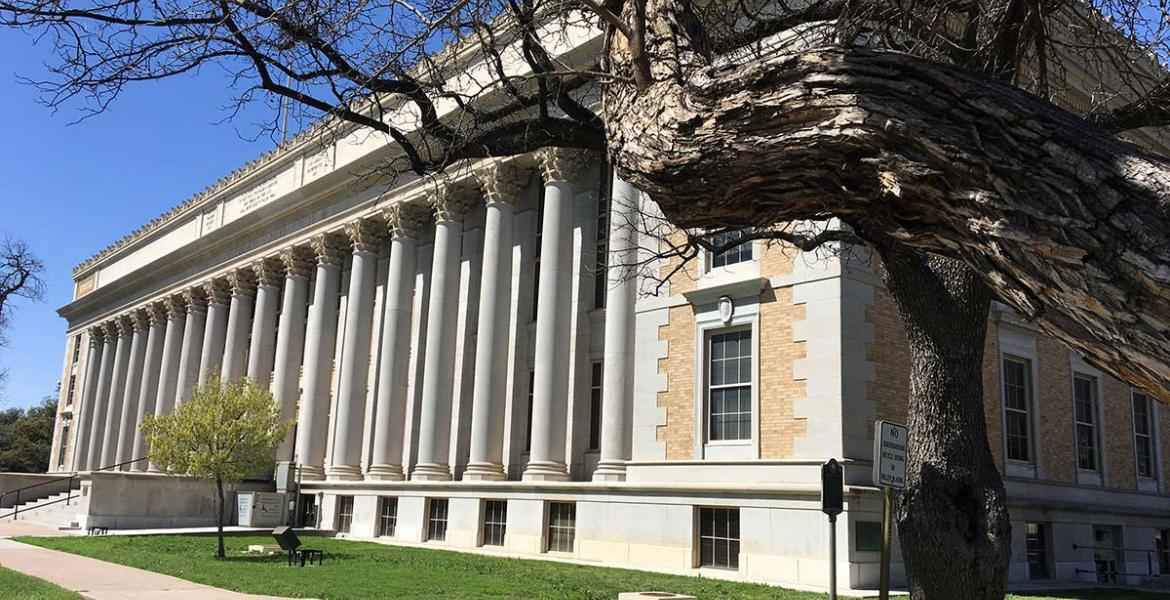OPINION - The concept of the "deep state" has garnered significant attention in recent years, often framed as a shadowy, conspiratorial group pulling the strings behind the scenes. But in reality, the term can be more usefully applied to a vast network of entrenched bureaucrats, public employees, and civil servants who keep the wheels of government turning, regardless of who holds political office.
These individuals are career professionals—teachers, police officers, IRS agents, and government clerks—who collectively form the backbone of public administration. While the term "deep state" carries a negative connotation, it’s worth examining what this term really means and the implications it has for American governance.
What is the Deep State?
The deep state is best understood as a sprawling and embedded network of government workers and officials, people who have worked for federal, state, or local governments for years, if not decades. These workers, who include tenured professors, career teachers, firefighters, police officers, and unionized civil servants, are often referred to as "entrenched" because they operate independently of the political tides that sweep through election cycles. They keep the machinery of government running, making sure that services are delivered consistently, even as politicians come and go.
From IRS agents to Department of Education employees, from highway workers to billing clerks, the deep state isn't just limited to those with high-level decision-making authority. It includes a wide range of workers who maintain essential services that allow government functions to continue, often without much recognition. They are often unionized, and their salaries are funded by taxpayer dollars. Many receive regular cost-of-living raises, which are frequently funded by local property tax increases. Over time, they accrue a significant stake in the continuity of the system, both in terms of job security and the benefits they derive from long-term employment.
A Vested Interest in Who Holds Power
Because these employees are part of a system that is subject to political oversight, they inherently have a vested interest in who is elected to every office, from local mayors to state governors, and especially the president. The policies and priorities of elected officials directly impact their livelihoods, the scope of their work, and even the survival of the very agencies that employ them. For example, a president who seeks to reduce the size of government or cut funding for federal agencies is perceived as a direct threat to the job security of the deep state. Conversely, leaders who favor an expansion of government or additional public services tend to be favored by this group.
In this way, the deep state often acts as a stabilizing force but can also appear resistant to change. These employees are not motivated by ideology alone, though they may lean toward progressive or left-leaning positions due to the nature of their work. Their primary interest is in preserving the systems and structures that secure their employment, pensions, and benefits. This is not to say that individual workers are politically corrupt, but rather that the collective interest of the deep state lies in sustaining itself.
The Deep State and the Progressive Agenda
It’s no secret that many sectors of the deep state, particularly in academia and public education, have long been advocates for progressive ideas. Tenured professors and career educators, for instance, often promote ideas that align with a progressive worldview. In these circles, notions of economic equity, social justice, and environmental sustainability are not just academic subjects but guiding principles that shape curricula and public policy recommendations. Public-sector unions, which represent many deep-state workers, also tend to advocate for progressive policies, particularly when it comes to expanding public services, raising taxes to fund government programs, and promoting labor rights.
However, the deep state is not homogenous. While many of its members support progressive ideas, there are also significant portions of the bureaucracy—particularly in law enforcement and the military—who may lean more conservative. Police officers, firefighters, and correctional officers, for instance, often belong to unions but may hold more traditional values, placing them at odds with other parts of the public sector. Nevertheless, what unites all these groups is their shared interest in maintaining stable employment within a functioning government.
The Invisible Hand of Government
While the idea of the deep state often raises fears of unelected officials wielding unchecked power, it’s important to recognize the crucial role these workers play in keeping the government functional. They may have a vested interest in who holds political office, but their everyday work—filing paperwork, issuing licenses, responding to emergencies, teaching students—has a stabilizing effect on society. Without the deep state, the gears of government would grind to a halt every time there was a change in administration or a shift in political power.
However, this same stability can breed complacency and, in some cases, resistance to needed reform. Entrenched government workers are often accused of slow-walking initiatives they disagree with or of obstructing efforts to downsize or reform government institutions. This is where the term "deep state" transforms from a neutral description into a pejorative. Critics argue that these bureaucrats, by virtue of their longevity and institutional knowledge, can manipulate the system to serve their own interests rather than those of the public.
Conclusion: A Necessary and Complex System
The deep state may seem mysterious and even threatening to those outside its ranks, but it is a necessary component of modern governance. Its members keep essential services running, providing continuity in times of political change. However, their entrenchment also means that they have a vested interest in the status quo, making reform more difficult to achieve. As long as there are elections and shifting political winds, the deep state will remain, quietly operating behind the scenes to ensure the government's ongoing functionality—even if it sometimes works in its own favor.
Subscribe to the LIVE! Daily
Required






Comments
Listed By: Rita Repulsa
Upshot: The Deep State isn't made up of MIB heavies lacking fingerprints so much as it consists of innocuous, mild-mannered individuals who range from clerks to billionaires working in, for and with the government. That they could be responsible for so much mayhem makes perfect sense when you realize what kind of people populate planet Earth.
We live in a world where the Stasi had no trouble employing ⅓ of the populaton of Soviet Germany to do things as innocuous as consistently letting the air out of targeted individuals' bike tires or slowly killing their favorite plants, all to cumulatively affect their well-being, and done with perfect secrecy.
- Log in or register to post comments
PermalinkListed By: sanglo expat
Regarding what time it is, I still wear a watch. Heck, I still have the pocketwatch my father carried. At any rate, I'd much rather own a Timex than the pieces of trash described below. Timex watches keep time very well, they are affordable, and they don't lie about what they really are. You can't say all that about the name these dungthings carry.
https://www.hollywoodreporter.com/lifestyle/style/trump-watch-likely-made-in-china-overpriced-1236013728/
- Log in or register to post comments
PermalinkListed By: Rita Repulsa
I'm sure that many watches, (and likely the deep state itself,) have inglorious, occulted backstories.
- Log in or register to post comments
PermalinkPost a comment to this article here: